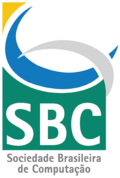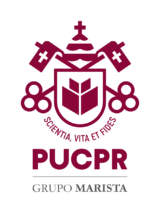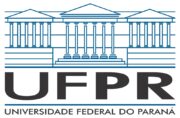SBSeg 2025: XXV Brazilian Symposium on Cybersecurity
Foz do Iguaçu – PR – September 1-4, 2025
XIX Workshop on Undergraduate Research Works (WTICG)
CALL FOR PAPERS
PRESENTATION
The Workshop on Undergraduate Research Works (WTICG), part of the Brazilian Symposium on Cybersecurity (SBSeg), aims to encourage undergraduate students and recent graduates to engage in the production and dissemination of scientific research on topics related to information security and computational systems.
The extended proceedings of the event will be published with open access in the SBC Digital Library (SOL). You can check the proceedings of previous editions of WTICG by clicking HERE.
INSTRUCTIONS TO AUTHORS
Undergraduate students or recent graduates who completed their degree in 2024 or 2025 are eligible to submit papers to WTICG. The undergraduate or recent graduate status must be verified with official documentation issued by the university, college, or institute, which must be submitted along with the final version of the paper (if accepted).
Authors are invited to submit undergraduate research projects, undergraduate thesis, or independent research projects developed during their undergraduate studies under the supervision of one or more faculty members. These projects may be ongoing or completed in 2024 or 2025.
Papers with significant results should be submitted to the Full Papers track, while ongoing research should be submitted to the Work-in-Progress track.
Undergraduate students or recent graduates who are the first authors of papers accepted at WTICG will have their SBSeg registration fee provided by the Student Grant program of the Special Commission on Information and Computational Systems Security (CESeg) of the Brazilian Computer Society (SBC). This program aims to encourage student participation in WTICG.
The following criteria will be considered in the evaluation of papers: originality, relevance, presentation, results, and technical quality. The papers selected by the technical program committee will be published (in digital format) as long as at least one author is registered for the event and presents the paper.
USE OF AI TOOLS
We ask all authors to review the SBC Code of Conduct, especially the section related to the use of Generative Artificial Intelligence.
IMPORTANT DATES
- Paper registration: 26/05/2025 (Firm)
- Paper submission: 26/05/2025 (Firm)
- Notification to authors: 01/07/2025
- Final version submission: 14/07/2025
TOPICS OF INTEREST
- The topics of interest for WTICG papers align with the list defined for the Main Track of SBSeg. However, this list is not exhaustive, and submissions in all areas of cybersecurity are welcome.
FORMATTING AND SUBMISSION
The submission of papers will be exclusively electronic, through the JEMS3 platform. Papers can be written in Portuguese or English and must be submitted only in PDF format, following the SBC article submission template, available on the SBC Portal. Papers submitted to WTICG must represent original, unpublished work. Submissions of papers that are currently under review or have already been published in other conferences or journals are not allowed.
- Full Papers: up to 10 pages of main content, excluding additional pages with appendices (not required for work evaluation) and references.
- Work-in-Progress: up to 5 pages of main content, excluding additional pages with appendices (not required for work evaluation) and references.
The page limit applies to both the version submitted for evaluation and the final version of the accepted papers.
The main content includes, in addition to the body sections, the title, authorship (only in the final version), affiliation (only in the final version), the abstract, and the summary.
The appendices are intended to provide additional information on the topics presented, but reading them should not be necessary for understanding and evaluating the main content. It is expected that such appendices do not exceed 40% of the main content’s volume.
The page limits above must be strictly followed by the authors, under the risk of desk rejection without evaluation of the content.
The paper text must be fully anonymized, avoiding any mention of authorship, even indirectly through references (for example), as the review process will be double-blind (with anonymous authors and reviewers).
ARTIFACTS SUBMISSION
As in previous editions, the WTICG will allow authors to optionally submit artifacts related to the submitted paper. These artifacts can include software, data, supplementary documentation, raw results, proof of concepts, models, detailed evaluations, benchmarks, etc.
The artifact will be submitted along with the paper and evaluated by a specific committee, which will assign the following labels: Available Artifacts, Functional Artifacts, Sustainable Artifacts, and Reproducible Experiments.
The artifact is an essential resource for research papers, and its quality is as important as the quality of the paper itself.
The artifact evaluation process will be based on the evaluation practices used by renowned conferences such as USENIX, CoNEXT, SIGCOMM, and EuroSys. Instructions and requirements for submitting the artifacts will be provided in the coming days.
Instructions and requirements for submitting the artifacts are available at https://doc-artefatos.github.io/sbseg2025/subinstrucoes.html – The artifact submission period will begin as soon as authors receive acceptance notifications and will last until the camera-ready submission deadline.
REWARD
An evaluation committee will select the best papers from both the full papers and work-in-progress presented at the event by undergraduate students or recent graduates, which will be honored during the event.
Additionally, the authors of the five best papers from WTICG will be invited to submit an extended version of their articles for a special collection to be published in the Electronic Journal of Scientific Initiation in Computing (REIC).
CHAIRS
- Flavia Paiva Agostini (Inmetro)
- Vinicius Fulber-Garcia (Federal University of Parana)
CONTACT
Email: [email protected] / [email protected]
Site: sbseg.sbc.org.br/2025
CESeg: www.ceseg.org
Instagram: instagram.com/sbseg2025
X: x.com/sbseg_sbc
Technical Program Committee
- Ademar Takeo Akabane (Pontifícia Universidade Católica de Campinas)
- André R. A. Grégio (Universidade Federal do Paraná)
- Carla Merkle Westphall (Universidade Federal de Santa Catarina)
- Carlos A. Maziero (Universidade Federal do Paraná)
- Carlos Eduardo da Silva (Sheffield Hallam University)
- Carlos Raniery Paula dos Santos (Universidade Federal de Santa Maria)
- Charles Varlei Neu (Universidade de Santa Cruz do Sul)
- Cintia Borges Margi (Universidade de São Paulo)
- Daniel Pigatto (Universidade Tecnológica Federal do Paraná)
- Daniel Stefani Marcon (Universidade do Vale do Rio Dos Sinos)
- Dianne Scherly Varela de Medeiros (Universidade Federal Fluminense)
- Diego Kreutz (Universidade Federal do Pampa)
- Diogo Menezes Ferrazani Mattos (Universidade Federal Fluminense)
- Dionisio Leite (Universidade Federal do Mato Grosso do Sul)
- Eder John Scheid (Universidade Federal do Rio Grande do Sul)
- Eduardo James Pereira Souto (Universidade Federal do Amazonas)
- Eduardo Luzeiro Feitosa (Universidade Federal do Amazonas)
- Emerson Ribeiro de Mello (Instituto Federal de Santa Catarina)
- Érico Amaral (Universidade Federal do Pampa)
- Ewerton Andrade (Universidade Federal de Rondônia e Sidia)
- Flavia Paiva Agostini (Laboratório Nacional de Computação Científica)
- Giovanni Venâncio (Universidade Federal do Paraná)
- Hilder Vitor Lima Pereira (Universidade Estadual de Campinas)
- Igor Monteiro Moraes (Universidade Federal Fluminense)
- Ivan Silva Sendin (Universidade Federal de Uberlândia)
- Jeferson Campos Nobre (Universidade Federal do Rio Grande do Sul)
- Joaquim Celestino Júnior (Universidade Estadual do Ceará)
- Juliano Kazienko (Universidade Federal de Santa Maria)
- Kalinka Regina Lucas Jaquie Castelo Branco (Universidade de São Paulo)
- Lucas Bondan (Rede Nacional de Ensino E Pesquisa)
- Luciano Ignaczak (Universidade do Vale do Rio Dos Sinos)
- Luis Carlos Erpen De Bona (Federal University of Parana)
- Luiz Carlos Pessoa Albini (Universidade Federal do Paraná)
- Marcia Henke (Universidade Federal de Santa Maria)
- Marco Aurelio Amaral Henriques (Universidade Estadual de Campinas)
- Marcus Botacin (Texas A&M University)
- Marjory Da Costa-Abreu (Sheffield Hallam University)
- Miguel Franklin de Castro (Universidade Federal do Ceará)
- Muriel Figueredo Franco (Universidade Federal de Ciências da Saúde de Porto Alegre)
- Newton Carlos Will (Universidade Tecnológica Federal do Paraná)
- Paulo Matias (Universidade Federal de São Carlos)
- Priscila Solis (Universidade de Brasília)
- Rafael R. Obelheiro (Universidade do Estado de Santa Catarina)
- Roben Castagna Lunardi (Instituto Federal do Rio Grande do Sul)
- Roberto Samarone Araujo (Universidade Federal do Pará)
- Robson Albuquerque (Universidade de Brasília)
- Rodolfo Ipolito Meneguette (Universidade de São Paulo)
- Roger Immich (Universidade Federal do Rio Grande do Norte)
- Sergio Oliveira (Universidade Federal de São João Del Rei)
- Tiago Heinrich (Max Planck Institute for Informatics)
- Vinícius Fülber Garcia (Federal University of Paraná)
COORDINATION
General Coordinators
- Altair Santin (PUCPR)
- André Grégio (UFPR)
- Eduardo K. Viegas (PUCPR)
CESeg Coordination
- Marcos Antonio Simplicio Junior (USP)
- Diego Kreutz (UNIPAMPA)
HOSTING
CONTACT
E-mail: [email protected]
in: linkedin.com/in/simpósio-brasileiro-de-cibersegurança-44584935a
Site: sbseg.sbc.org.br/2025
CESeg: www.ceseg.org
Instagram: instagram.com/sbseg2025
X: x.com/sbseg_sbc


